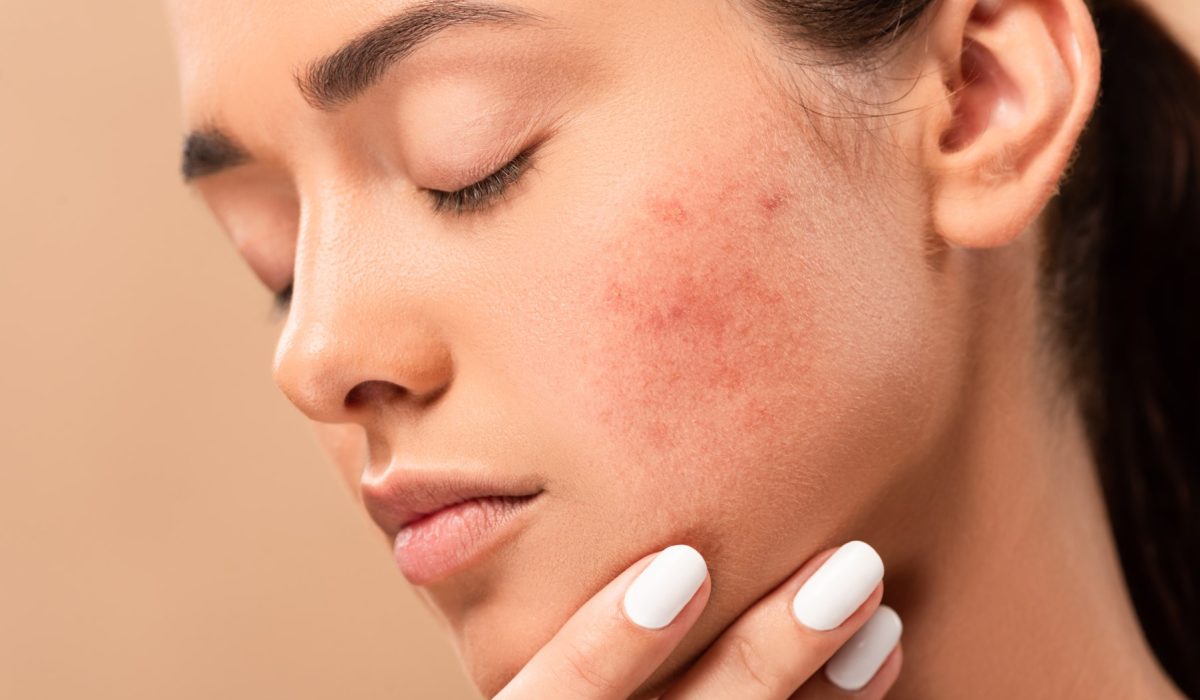Acne vulgaris is a most common skin condition in teenagers, although it affects people of all ages. It occurs when the hair follicles become clogged with dead skin cells. Acne appears mostly on the face, forehead, chest, upper back, and shoulders.
Symptoms:
The symptoms are different based on the severity of the condition:
- Whiteheads (closed plugged pores)
- Blackheads (open clogged pores)
- Small red bumps (papules)
- Pimples (pustules), with the pus at the tips
- Big, solid, painful lumps under the skin (nodules)
- Painful, pus-filled lumps under the skin
Causes:
- Excess oil (sebum) production
- Hair follicles plugged by oil and dead skin cells
- Bacteria growth on the skin
- Inflammation (redness)
Risk factors:
Certain things may trigger or increase your risk of acne. Those include:
- External factors such as mechanical obstruction (helmets, shirt collars)
- Occupational exposures, or medications
- Cosmetics and emollients
- Topical corticosteroids
Diagnosis:
Acne vulgaris is usually diagnosed by the help of physical examination
The severity of acne is often categorized as below:
- Mild – whiteheads and blackheads, with a few papules a
- Moderate – more widespread whiteheads and blackheads, with many papules and pustules
- Severe – lots of large, painful papules, pustules, nodules, or cysts; you might also have some scarring
Treatment:
Acne treatment based on the patient’s age and sex, the extent and the severity of the acne, and response to previous therapies; below are the treatment strategies:
- For mild acne, the treatment includes topical anti-acne preparations, lasers, and lights
- For moderate acne, the treatment includes antibiotics such as tetracyclines and antiandrogens such as birth control pill
- For severe acne, the treatment requires a course of oral isotretinoin
Complications:
- Post-inflammatory hyperpigmentation
- Scarring, including keloid scars
- Psychological effects of acne
Prevention:
- Wash your face twice a day
- Use the fingertips to apply a gentle cleanser
- Use gentle products, that are alcohol-free. Avoid using products that irritate your skin (astringents, toners, and exfoliants)
- Avoid scrubbing your skin as it makes acne worse
- Rinse with lukewarm water
- Shampoo regularly if you have oily hair
- Avoid squeezing or popping your acne, as it takes longer to heal
- Stay out of the sun, as tanning damages your skin
- Consult a dermatologist if your acne is causing appearance issues

